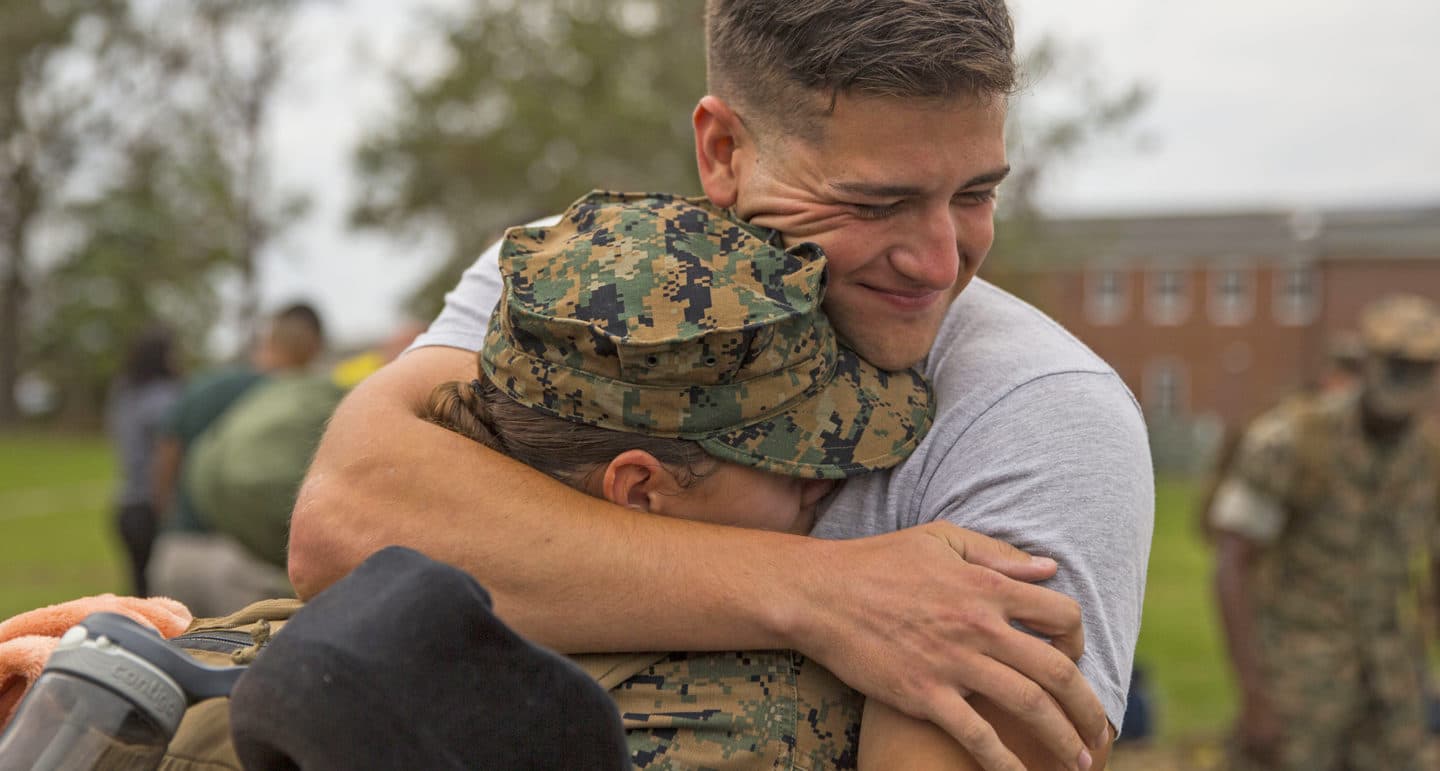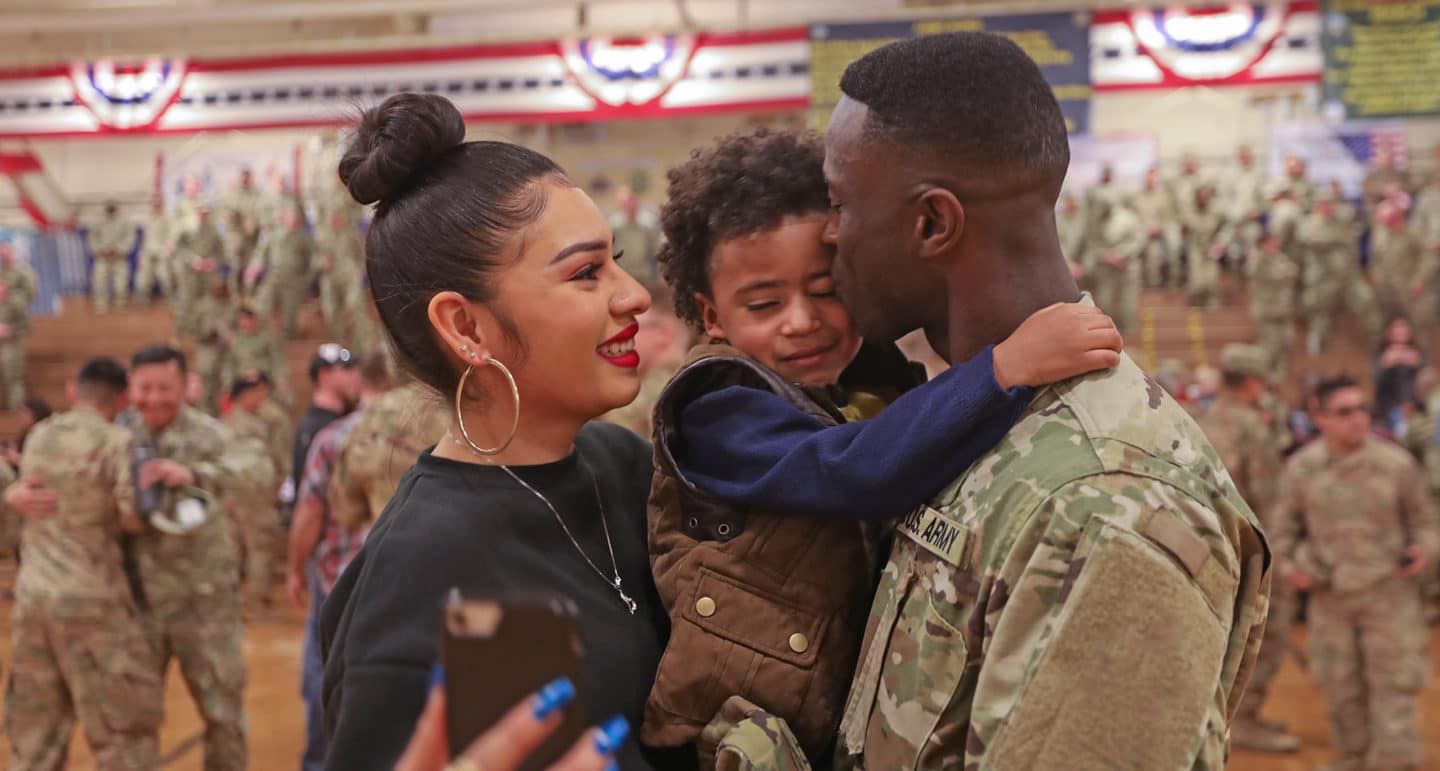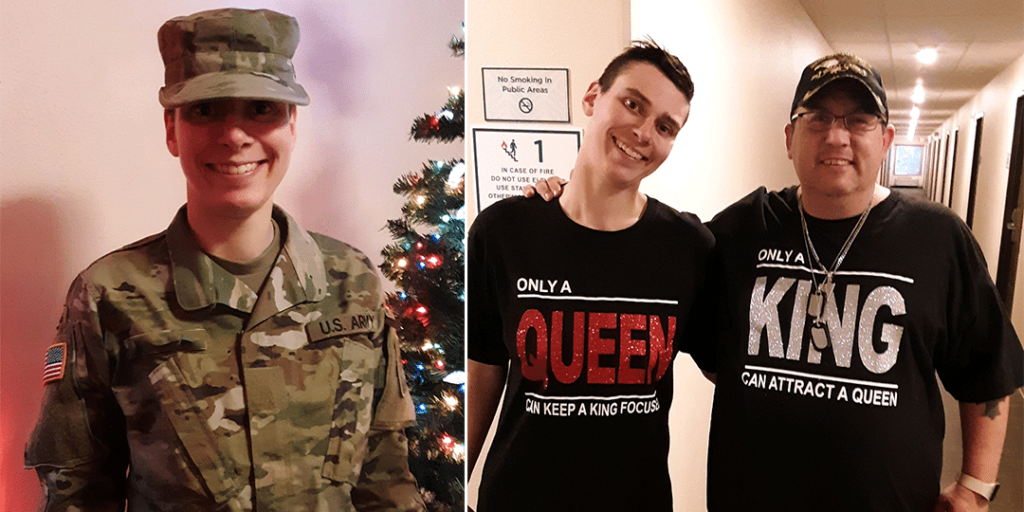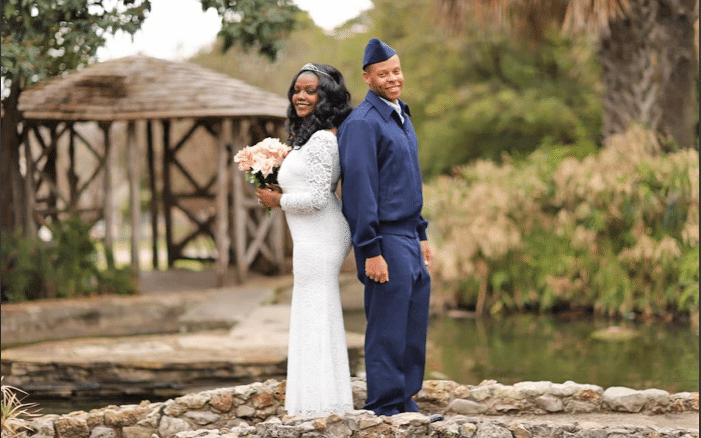If you’re in a new military relationship, you probably have a lot of questions.
It’s normal to be confused about how the whole military lifestyle really works, especially if you’re a new military boyfriend or girlfriend.
Military relationships are fun, hard, interesting, challenging, and most of all, rewarding. No matter how foreign this all is, just know you don’t have to struggle alone.
The happy, experienced military significant others will offer you solid military relationship advice. Others may gripe about their service member like a broken record. Avoid the latter if you have any hopes of surviving your new military relationship.
Ain’t nobody got time for that nonsense.

Here’s a breakdown of some of the most important tidbits you’ll want to know as a newbie to the military significant other community:
1. Duty Comes First
You matter, of course. But, the military thinks they matter more. Your service member made a commitment to fulfill a specific duty, and the military will ensure that duty is fulfilled. With that in mind, here’s some extra tips to help you through these early days:
- Be understanding – You have to be reasonable about work schedules. There is no 9-5 when it comes to the military. Your other half will have to leave in the middle of the night, be on call, work overnights, and more. They love the unpredictability even less than you do.
- Patience is a must – You’ll do a lot of waiting when it comes to anything with the military. You’ll wait to hear about graduation dates, training dates, deployment dates, work schedules, and more. Patience will be your finest virtue.
- Do your own thing – When you have your own life going on, time flies by when you’re not with your service member (which is a lot). They’ll appreciate you staying busy with your own interests and not worrying about them every second of the day.

2. Get Connected
One of the best aspects of the military is you never have to go through the experience alone. Go to any base or military function, and there are a ton of people who want to make friends just as much as you do. This is especially true of military significant others. They want to know they’ve got a tribe to support them.
- Find a seasoned military girlfriend/spouse – Ask your service member to introduce you to friends. They’ll have significant others you can connect with, many who have years of experience under their belts they’d love to share with you. They’ve been there, and they know the best way to navigate some of the toughest military situations.
- Look for social support – Social media groups can be a wonderful place to connect with fellow significant others who are at your same base. You can always connect in the Sandboxx Facebook community, too! Avoid groups filled with gossip or mean-spirited comments.
- Socialize – Get on base with your other half as much as possible. There are tons of great activities put on by Morale, Welfare and Recreation (MWR) like family events, concerts, and more. Military balls are another great way to dress-up and let loose with other couples.
3. Engaged or Not, You Don’t Get Military Benefits
Even if you’re engaged, it’s important to remember that the length of your relationship or how serious it is doesn’t mean much to the military. What really matters is if you’re enrolled in the Defense Enrollment Eligibility Reporting System (DEERS) as a spouse.
What does that mean for you?
- The ID is everything – A military ID shows you are an official part of the military system. If you don’t have this, you can’t get on base alone, go into the commissary, or generally do anything without your service member by your side when it comes to the military.
- Base access is a process – Your military member has to be with you at all times on base. There’s no exception to this, ever. They will have to meet you at the gate and bring you in when they show the guards their military ID and your own valid government-issued ID.
- Moving is a big deal – If you decide to relocate to your service member’s new location, you get to foot the bill. It’s a tough decision that will come up often, especially if you’re not ready to get married just yet.

4. Give Support Near or Far
The most important part of a military relationship is to know that your member needs your support. Whether they are stateside or deployed, your understanding and love makes their time in the service much easier. With that said, it’s not easy.
- Prep for long periods away – You will spend a lot of time away from your service member. You’ll probably spend more time apart than together, actually. This is a hard reality for many significant others, and other than potentially dangerous deployments, it may be the hardest part of a military relationship.
- Connect when you can – Daily texts, calls, or emails are great when your service member is stateside. When they’re deployed, you’ll rely a lot on letters, emails, the random call, and the even less frequent video chat. Staying connected takes effort, but it’s well worth it when you hear from your other half.
- Be their cheerleader – Military life is tough. There’s plenty of long hours, strict deadlines, and cranky higher-ups your service member deals with weekly. When they’re down, lift them up in the only way you know how.

5. Work is Sometimes a Secret
The military is a fascinating organization that is often run on secrecy. Entire missions and game plans (especially during deployments) depend on confidentiality. As a significant other of a military member, you will also be require to keep secrets — it’s called Operational Security or OPSEC, for short. It’s hard to keep secrets, but keep this in mind:
- It’s really a secret – Your significant other would love to tell you about their day. But sometimes they are bound by contract not to do so. This is especially true for military members who work with classified information, which is many of them. If they say they can’t tell you, they really can’t. Try not to pry as it will frustrate them and you.
- OPSEC is real – As a significant other, you’ll also be expected to follow certain procedures as well when it comes to security. Sharing when and where a Navy ship pulls into port, for example, is off limits until it’s publicly announced by the ship’s command. It’s to ensure the utmost safety of service members.
- It’s not you, it’s the government – The government keeps information under wraps for a long time — sometimes even a century. If you ever get the time, check out the CIA’s declassification process. If they just recently released details of classified information from 1918, you can bet you probably won’t get to know all the details of your service member’s military intelligence activities anytime soon.
6. Ignore the Negative Nancys
It’s an unfortunate reality that people get negative really fast when it comes to the military. From the politics that run it to the military families themselves, it’s not hard to find someone complaining long and loud about military life. To that we say, avoid them like the plague.
Here’s a short list of negative sources to avoid:
- News – If your loved one is deployed, this is a definite source to avoid. It will create anxiety and uncertainty for even the most level-headed people. Social media news is often not real news, especially if it’s found in a forum that’s likely violating OPSEC.
- Gossipy people – Gossipy people contribute to the rumor mills like it’s their job (see below). Don’t let them sucker you in. Politely decline to further discuss and disengage as quickly as possible. Gossip lowers morale, especially for service members if you share untrue news.
- Rumor mills – Avoid listening to and contributing to the rumor mills — there’s a lot of them, especially in the military world. When conversing with another military spouse or significant other, whether you’re swapping life stories or service member stories, keep it positive and truthful. Before it comes out, ask yourself, “Is this the truth?”


Military Relationship Advice Will Vary
Whether you’ve been in a military relationship for 2 months or two years, there will always be challenges. There’s also great reward, respect, love, and appreciation for your efforts as a military significant other.
There are plenty of bitter service members and military spouses who will fill your ears with negative advice and horror stories. For every bad relationship, there’s a good one.
Military relationships aren’t easy, but they are worth it when you push through the hardest parts. Everyone has a different military relationship story, and you get to create your own.
Although it’s not always a walk in the park, years from now you may reflect back on these early stages as the solid foundation you built your loving relationship upon.
What’s the best military relationship advice you’ve heard as a military significant other? Let us know in the comments below!





